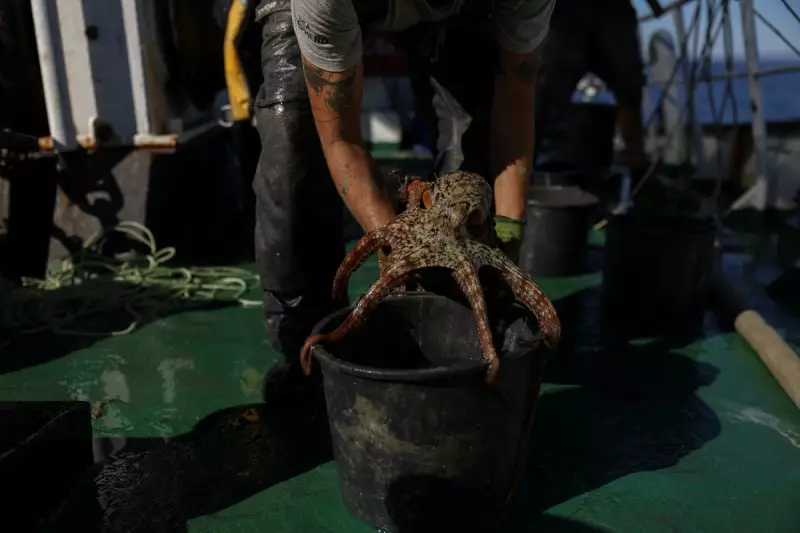
Greek authorities have declared a new front in the battle to protect their precious marine ecosystems: a crackdown on the rampant illegal fishing of octopuses. This cruel and destructive practice is pushing local populations to the brink, prompting an urgent response from the government.
The Destructive Practice of 'Octopus Pulling'
At the heart of the issue is a method known locally as 'vatoschani' or 'octopus pulling'. Instead of using traditional rods or nets, poachers hurl homemade tools—often made from plastic bottles and long lines with sharp hooks—into the water. These devices are dragged along the seabed, snagging any octopus hiding in its nest. The method is indiscriminate, highly effective, and leaves a trail of destruction, damaging the delicate seabed and killing countless other marine creatures in the process.
An Ecological and Economic Crisis
The impact is twofold. Ecologically, the practice is devastating. Octopuses are a keystone species, and their rapid depletion disrupts the entire food chain. Economically, it threatens the livelihoods of legitimate, licensed fishermen who adhere to sustainable practices and seasonal bans designed to allow octopus populations to reproduce.
"This is not just illegal; it is an ecological crime," stated a spokesperson from the Greek Ministry of Rural Development and Food. The Ministry has now issued a stern warning, emphasising that offenders will face severe penalties, including hefty fines and the immediate confiscation of their equipment and any illegally caught catch.
A Nationwide Call to Action
The government is not acting alone. They are urging the public to become the 'eyes and ears' of the coast. Citizens and tourists are encouraged to report any suspicious activity to the port police or directly to a dedicated hotline. This community-focused approach is seen as vital for enforcing the law across Greece's vast coastline and numerous islands, where surveillance is a significant challenge.
This crackdown represents a critical step in preserving Greece's underwater heritage for future generations, ensuring that its iconic octopus populations can thrive, not just survive.





